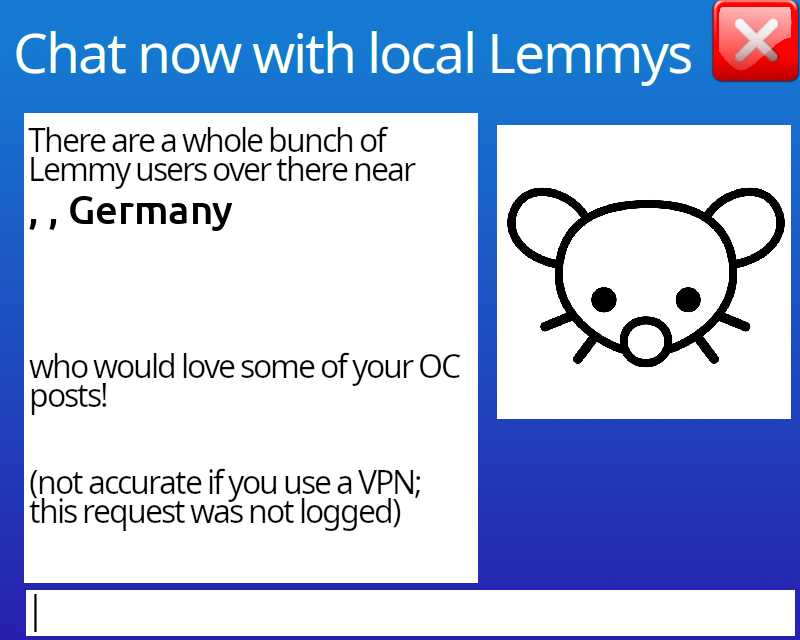

We pretty much had this when the first reliable Mastodon<->Bluesky bridge came online. The Fediverse side protested and made the entire system opt-in, making it practically unusable because people that don’t have a favourite Linux distro don’t know what a fedi is and why they should bridge to it.
When this goes live, I expect people to treat it the same as every other sizeable social media joining the Fediverse, with outrange and block lists.










Oracle has a generous free server offering. You will need to trust Oracle not to turn off your server because a business customer needs it, though. Availability of their good free tier also fluctuates and you need to figure out their weird IP/firewall/security config.
You need a domain name to effectively federate, too. There are free options available for those too, but they’re not very reliable.